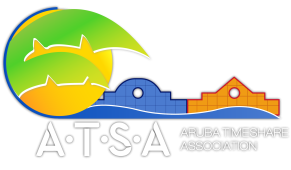Timeshare Terminology
Timeshare Terminology
Banking or Deposit
Depositing a week of owned timeshare into an exchange system or inventory pool.
Biennial
Use of a timeshare week every other year. Owners are often referred to as either “odd” or “even” year owners.
Developer
The Company owning the Resort. The Developer is usually responsible for constructing the accommodations on-site and selling the product.
Exchange Company
The system that allows timeshare owners to trade the accommodations they own for travel-related services or comparable accommodations in other destinations. Most Resort Companies are affiliated with an exchange Company. Many Resort Companies may also offer an internal exchange mechanism that allows owners to exchange to Resorts within their Company’s portfolio of Resorts.
Fixed week
A type of timeshare ownership in which usage rights attach to a specific week of the year each year in perpetuity.
Floating week
A type of timeshare ownership where the usage rights are subject to the owner reserving his or her week within a season purchased (winter, summer, etc.) or sometimes throughout the year. A year-round “float” is most often found in Resorts with similar seasons, like Hawaii or the Caribbean.
Fractional Ownership
Leisure real estate sold in intervals of more than one week and less than whole ownership. Fractional are usually associated with the luxury segment of vacation ownership, offering greater services and amenities.
Home Owners Association (HOA)
The group of owners that administer the rules and regulations of a timeshare Resort.
Home Resort
The Resort location where a new purchaser owns his or her week or designated as the home Resort in a club or points-based program. Ownership is usually tied to this home Resort and generally involves priority reservation rights in that location.
Interval or weekly interval
Vacation ownership as measured by a set number of days and nights of annual use, usually one week.
Lock-off
A type of timeshare unit consisting of multiple living and sleeping quarters designed to function as two discrete units for purposes of occupancy and exchange. The unit can be combined to form one large unit or can be split or “locked-off” into two or more separate unites, allowing the owner to split the vacation into multiple stays or bank all or a portion for exchange purposes.
Maintenance fee
A fee that timeshare owners are required to pay, usually on an annual basis, to cover the costs of running the Resort, including daily management, upkeep, and improvements.
Points
A “currency” that represents timeshare ownership and is used to establish value for seasons, unit sizes, and Resort locations. Points are used by some developers for both internal and external exchange.
Points conversion program
An offering whereby owners of a timeshare interval(s) pay(s) a fee to convert their interval for the equivalent in points.
Rescission
Sometimes called a “cancellation” or “cooling off” period. A period of time during which a consumer has the right to cancel a purchase contract and obtain a full refund of his/her deposit with no penalty. Dictated by individual Companies rescission periods may range on average from 5 to 7 days. This is another example of the strong consumer protections built into the timeshare sales.
Resale
A vacation ownership interest that is sold on the secondary market by the original purchaser to a third party.
Right to use
A timeshare owner’s right to occupy a unit at a Resort for a specified number of years and having no real estate interest conveyed.
Timesharing
A term used to describe a method of use and/or shared ownership of vacation real estate where purchasers acquire a period of time (often one week) in a condominium, apartment or other type of vacation accommodation. Timeshare is also known as “vacation ownership.”
Trading power
A term used for the value assigned for exchange purposes to a member’s deposited vacation time.
Trial membership
A product offered after the initial sales tour consisting of travel-related products and services packaged with an opportunity to experience the Resort developer’s primary vacation ownership product within a defined period. Sometimes called a “sampler” program.
Vacation Club
A term used to describe various types of timesharing and usually involving use or access to more than one Resort location and other vacation and travel services. However, the term is used for many different purposes, including “clubs” which may have nothing to do with timesharing.
Vacation ownership
A term often used to describe Resort timesharing.

